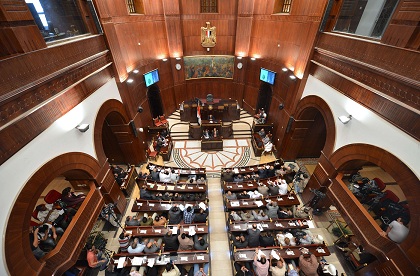Rising property prices in Egypt have paved the way for a new investment trend: fractional ownership in real estate. This emerging model is increasingly seen as an attractive avenue for both individual and institutional investors. By allowing multiple parties to co-own shares of a property—often in premium or income-generating developments—fractional ownership reduces entry costs, distributes risk, and opens the market to smaller investors, aligning with evolving dynamics in the real estate sector.
At the Fractional Real Estate Roundtable, Mohamed Youssef, Advisor to the Chairperson of the General Authority for Investment and Free Zones (GAFI) for Promotion, revealed that active discussions are underway with the Financial Regulatory Authority (FRA) to establish frameworks that safeguard investor interests in this growing segment. He also announced that GAFI is preparing a package of incentives tailored to boost investment in Egypt’s real estate market.
Youssef noted that Egypt’s property sector has experienced remarkable growth in recent years, especially in New Alamein and the New Administrative Capital. He emphasized the potential of fractional ownership to appeal not only to local investors but also to Egyptians abroad and foreign nationals, particularly given Egypt’s relative economic and political stability.
Tarek Shoukry, Chairperson of the Real Estate Development Chamber at the Federation of Egyptian Industries, announced reforms in property registration procedures aimed at streamlining ownership verification. He shared that a Property Origin Certificate will now mark the starting point of the registration process, following the issuance of a national ID number for the property. In coordination with the Ministry of Communications, properties meeting criteria for electricity meter installation can obtain this national ID within 24–48 hours.
Shoukry added that under-construction buildings that have received ministerial approval and building permits are also eligible for a real estate national ID within 48 hours. These changes are expected to accelerate documentation and transaction processes while improving transparency and governance in the sector.

Fathallah Fawzy, Vice Chairperson of the Egyptian Businessmen’s Association and Chair of its Construction and Building Committee, described fractional ownership as an innovative and promising investment mechanism. He noted that it supports the development of more inclusive and adaptive financial tools in real estate, extending access to a broader pool of investors and supporting economic diversification.
Fawzy also called for the creation of a dedicated regulatory entity to oversee and support the sustainable growth of Egypt’s real estate market, including its evolving investment models.
Mostafa El Beltagy, Co-founder and CEO of Nawy, expressed support for the concept but flagged potential risks, particularly its vulnerability to money laundering if not properly regulated. He stressed the need for robust FRA oversight, warning that without a clear legal framework, fractional ownership could become a loophole for illicit financial activity.
El Beltagy highlighted the model’s potential, noting that although Egypt has a population of over 100 million, only about 100,000 real estate transactions occur annually, with just 35% driven by investment purposes. Fractional ownership, he argued, could significantly increase market participation.
Salah Katamish, Senior Vice President of Investment & Strategy at Madinat Misr, emphasized the role of technology in revitalizing fractional ownership. He pointed to the company’s app, Safe, launched six months ago, as a key enabler. The platform allows users to browse properties, view expected returns, and complete transactions with full transparency.
Katamish stated that Safe currently focuses on rented units, offering investors the opportunity to earn immediate income, thereby improving investment appeal and credibility.
Ahmed Saqr, Founder and CEO of SDC Egypt and the Farida fractional ownership platform, noted that while Egypt is viewed by foreign investors as high-risk, it also presents high-return potential. Saqr disclosed that trading property shares on the Farida platform—akin to stock exchange trading—is expected to commence in January 2026, contingent on regulatory approval.
He affirmed that Egypt’s real estate sector holds substantial untapped potential and that fractional ownership could play a key role in unlocking new demand.
Mohamed Abdel-Gawad, CEO of Vantage Developments, echoed this sentiment, describing fractional ownership as a transformative tool for real estate investment. He explained that it allows investors to acquire shares in income-generating properties without purchasing full units, democratizing access and widening the investor base.
However, Abdel-Gawad underscored the importance of a clear implementation roadmap, diversified portfolios, and robust legal frameworks to govern ownership rights, operations, and exit strategies. He warned that limiting share resale to the original development company could restrict investor exits and impact liquidity.
To counter this, he proposed establishing a Special Purpose Vehicle (SPV) or investment fund managed by a professional third-party operator—who would also retain a minor equity stake. This structure, he argued, could streamline investor entry and exit, offer secondary market access, and introduce structured buyback options, thus enhancing investor confidence and long-term viability.




